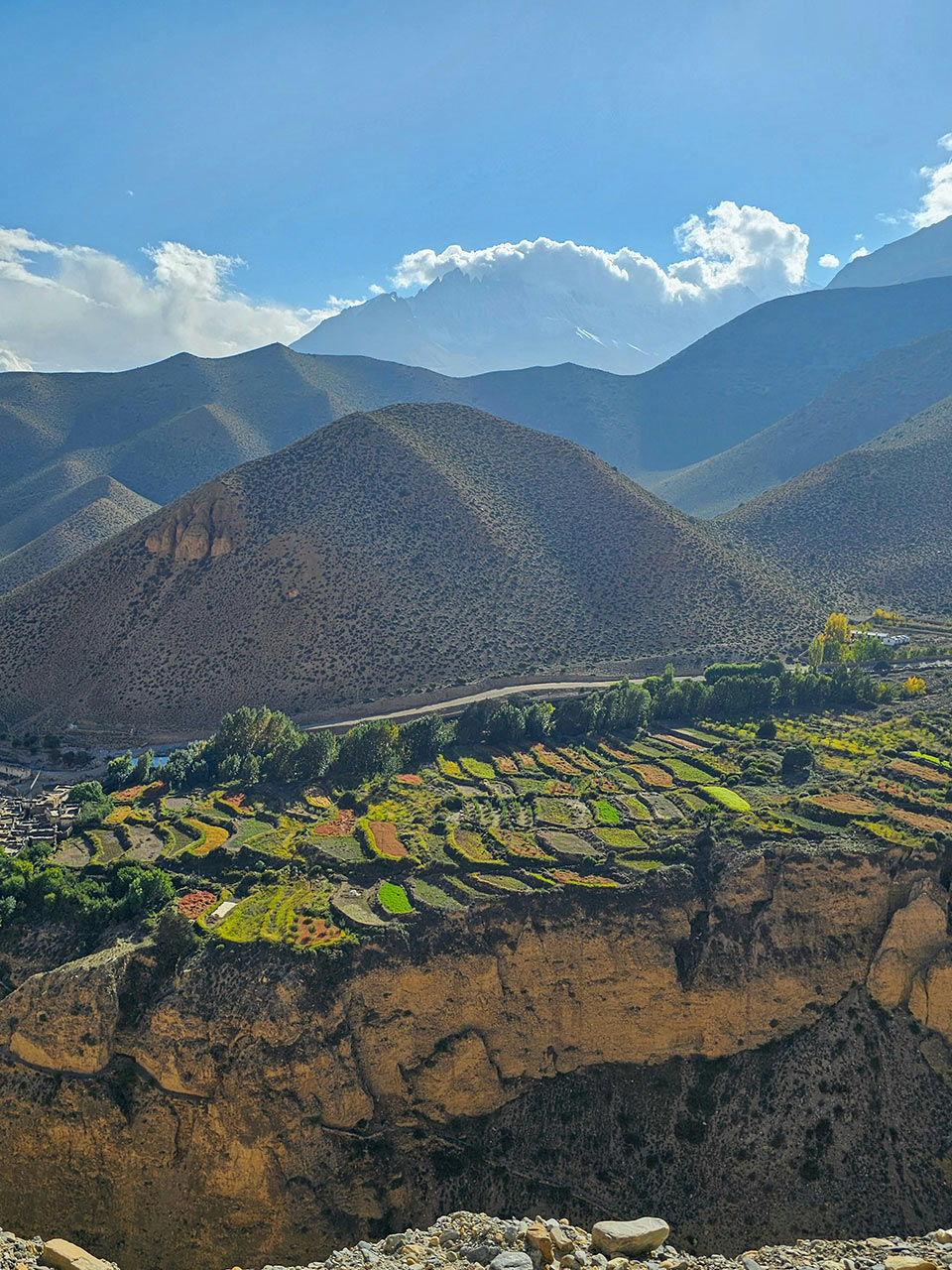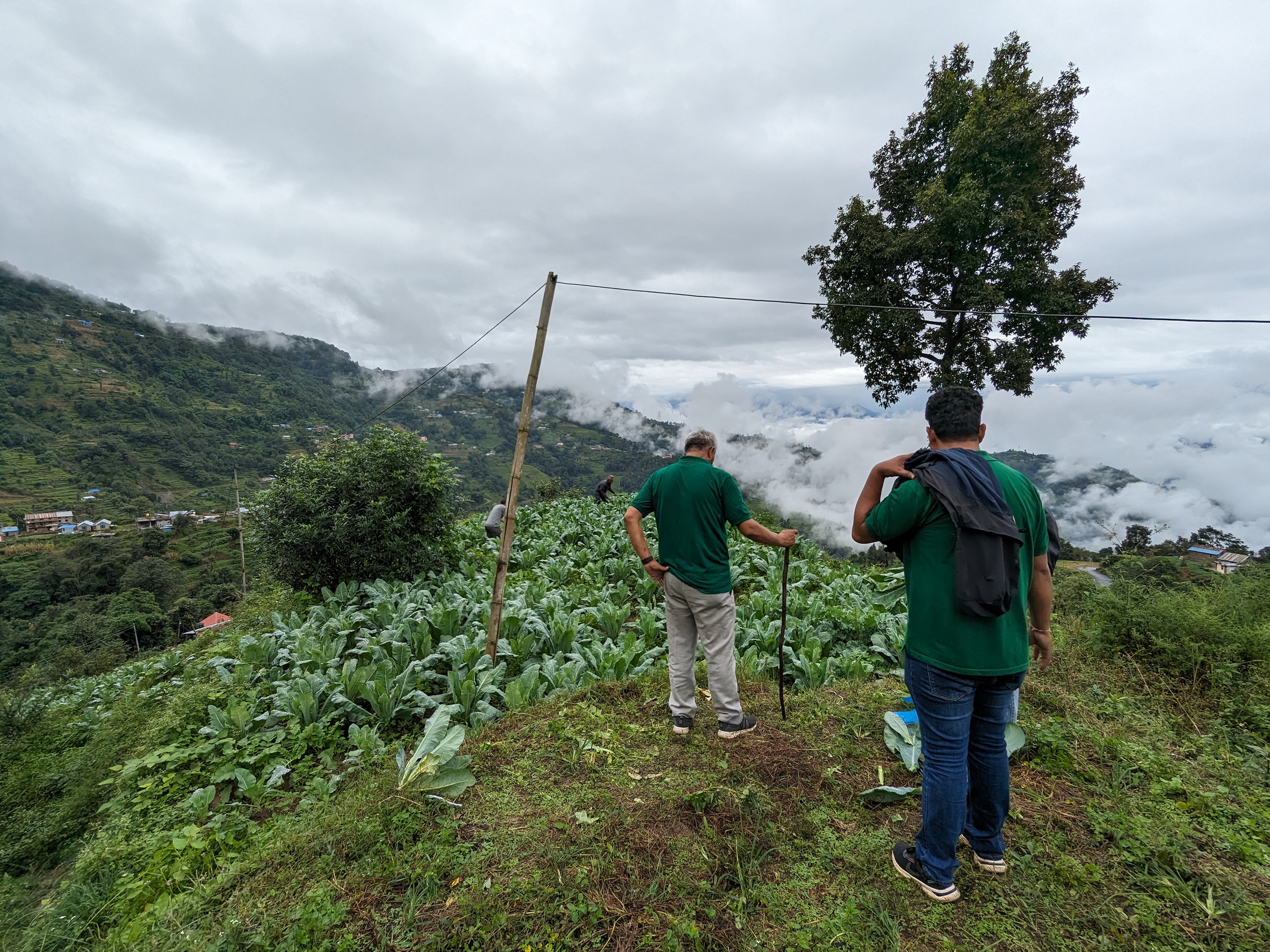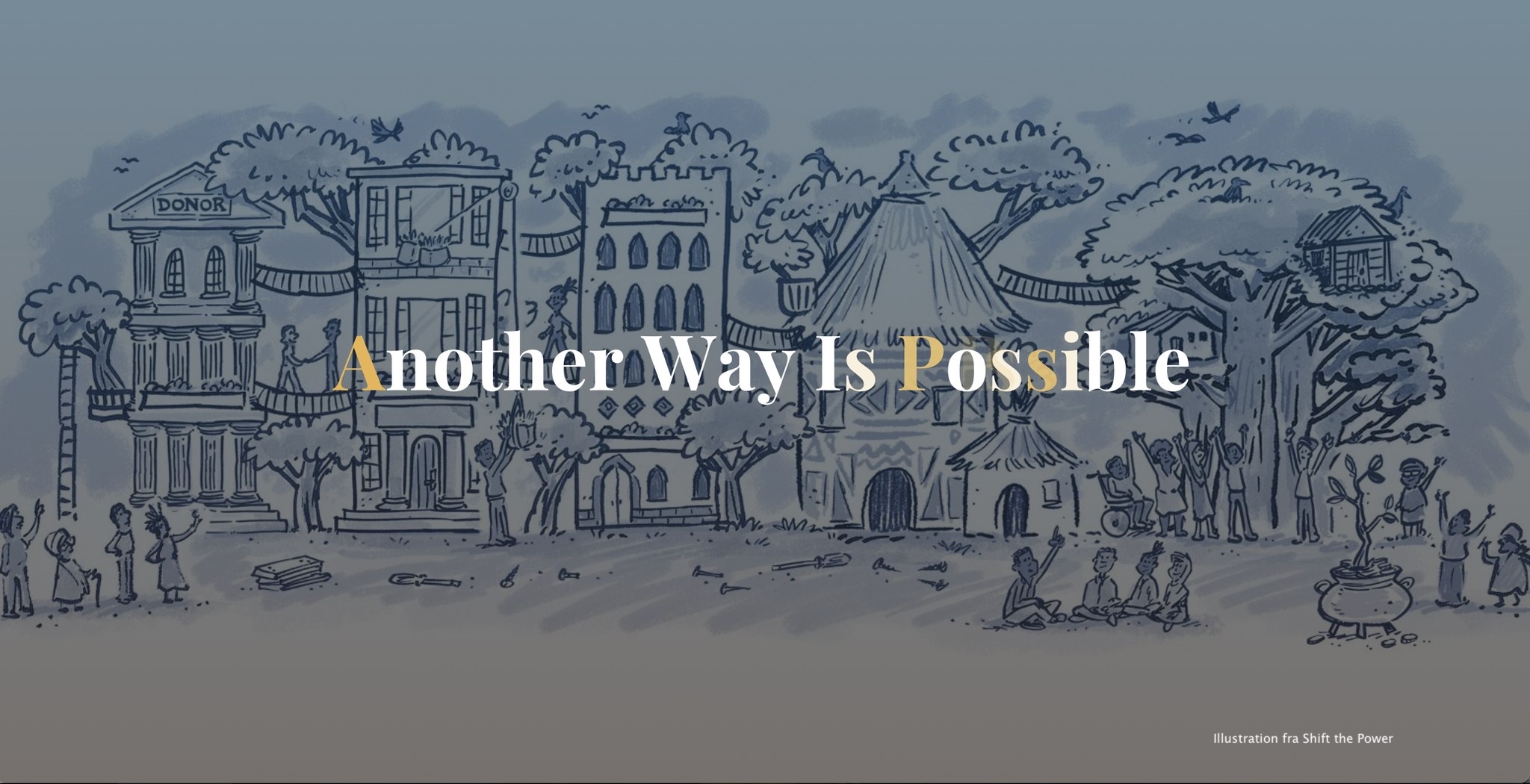Upper Mustang: Climate change threatens one of the world’s most vulnerable communities
In the high mountains of Upper Mustang, at an altitude between 3,300 and 4,000 meters, lie the two municipalities of Lo Manthang and Lo Gekar Damodar Kunda. Together they have 2,722 inhabitants – 1,470 women and 1,520 men. The area is characterized by cold, semi-arid conditions, shaded by Annapurna and Dhaulagiri, and is part of Nepal’s semi-restricted nature reserves. Until 1992, the region was completely closed to foreign visitors – today special permission is required to enter.
Livelihoods are based on agriculture, animal husbandry, tourism, medicinal plants and remittances from abroad. But climate change is now threatening all this.
Two groups are particularly hard hit:
1. Himalayan Dalits – communities historically subject to caste system discrimination and exclusion. They have limited access to education, political participation and economic security.
2. Nomadic yak herders – who for centuries have moved with their herds for pasture. Now their way of life is under pressure: unpredictable weather forces them to settle permanently – or leave the land. Many children are left in a vulnerable situation. In Nepal, the number of families with children is increasing – a phenomenon directly linked to climate change.
The fall of the glaciers – and the consequences
Above Upper Mustang hang the Himalayan glaciers – one of the world’s most important water sources. They are melting faster than ever and by the end of the century, up to 75% of the ice mass could be gone. In 2023, scientists warned of coming floods and water shortages. The land is changing: landslides, landslides and avalanches are becoming more common.
The communities of Upper Mustang rely on glacial water for both agriculture and livestock. But now the fields are periodically flooded – followed by drought when the springs dry up.
Livelihoods are at risk.
Although Nepal has promised to implement Local Adaptation Plans (LAPAs) in all municipalities, there are major problems in Upper Mustang:
- No local knowledge is used – LAPA plans risk relying on secondary data because it is difficult to gather data in the hilly terrain.
- Neither municipality has any kind of disaster plan.
- Local disaster committees have been set up – but have never met.
- No one knows what LAPA is – or what it’s for.
CICED’s partner Lo Gyalpo Jigme Foundation is the only local civil society organization in the area that has the capacity to support municipalities to develop LAPAs and strengthen their preparedness.
The aim of the project is to support vulnerable communities and local municipalities in Lomanthang and Lo Gekar Damodarkunda to design and establish flexible, inclusive and institutional arrangements to manage climate risks and implement community-led adaptation – thus strengthening resilience to climate change.
The project thus has three specific goals:
A. Strengthening the capacity of local disaster committees
B. Strengthening the capacity of key leaders in the municipality
C. Demonstration and documentation of LAPA
CICED provides technical and administrative support.
The project is funded by Danish taxpayers through solidarity development aid, administered by CISU.































